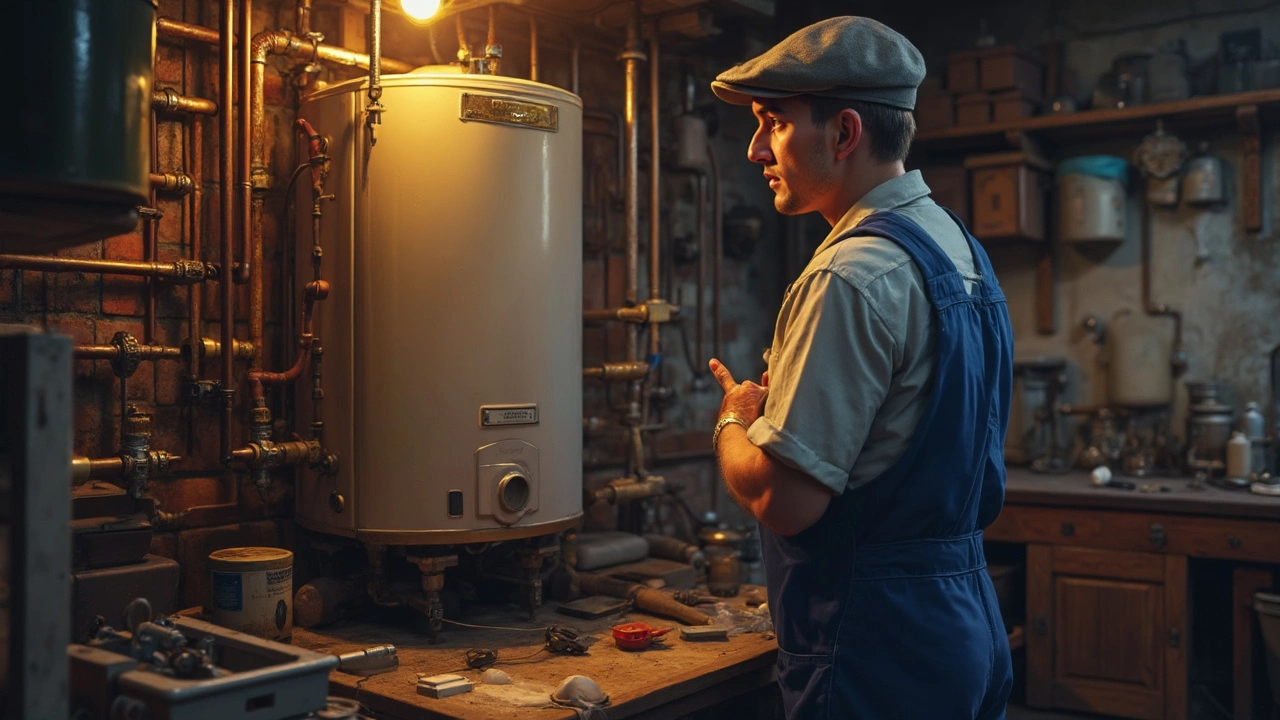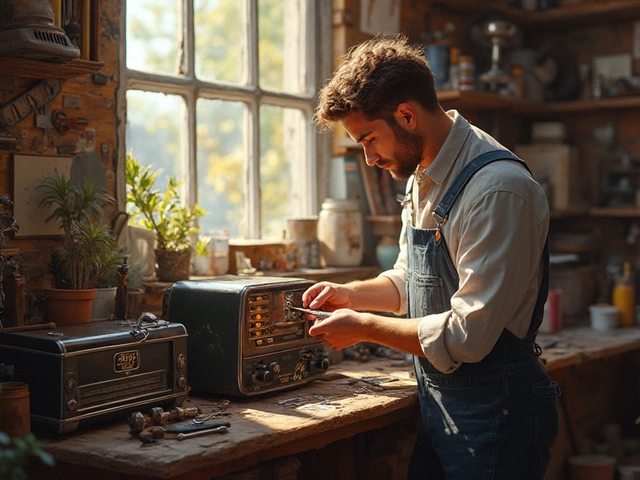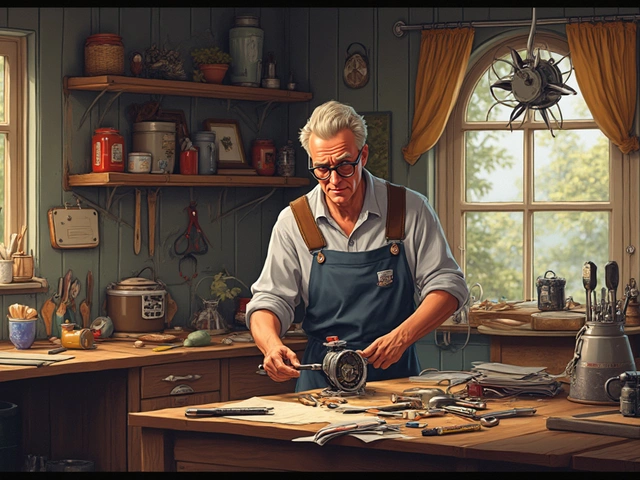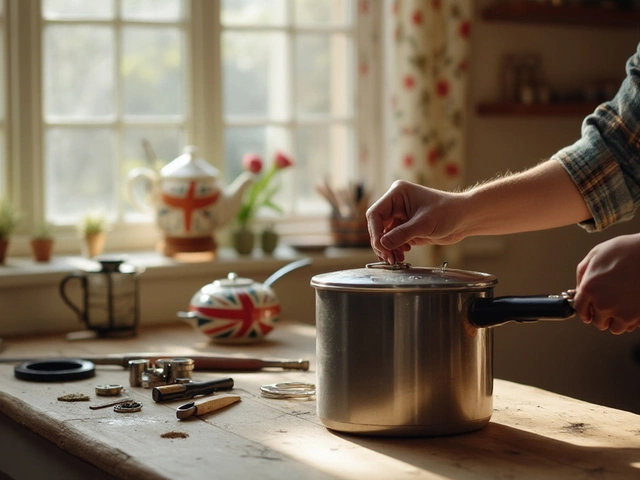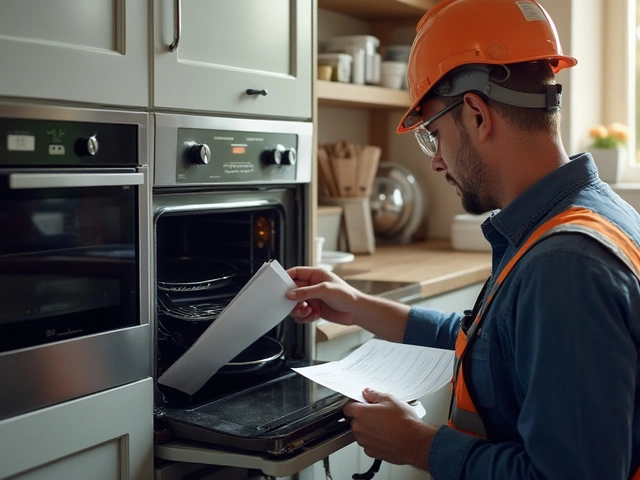So, your boiler's on the fritz and the house feels more like a freezer than a cozy home. You're probably wondering if you should be calling a plumber to sort it out. The answer isn't as straightforward as you'd hope. While plumbers tackle a variety of household issues, when it comes to boilers, things can get a bit tricky.
Boilers aren’t just big kettles that magically produce heat; they’re complex systems with many moving parts. Understanding what's in your boiler room is key. Sure, plumbers can handle water pipes and even some heating systems, but their expertise may not always cover the intricate wiring or specific components involved in a boiler itself. So when should you bring in a plumber, and when is it time to call a specialist?
- Understanding Boiler Systems
- Role of a Plumber in Boiler Repairs
- When to Call a Heating Specialist
- DIY Tips for Minor Boiler Issues
- Ensuring Efficiency and Longevity
Understanding Boiler Systems
Before diving into whether a plumber can fix a boiler, let's break down what a boiler system actually is. Think of it as the heart of your home operations, converting water to steam or hot water to pump warmth throughout the house. There's more to it than just a big metal box that heats.
The Basics
In essence, a boiler works by heating water, usually with natural gas, oil, electricity, or wood, and then distributing that heated water or steam through the home via pipes. This setup ensures that when you adjust the thermostat, the right amount of heat gets to each room.
Main Components
- Burner: This is where the magic starts. It's what gets the fuel and air to ignite together to start heating.
- Heat Exchanger: Once the burner does its job, this part transfers the heat created to the water.
- Pump: Pretty self-explanatory, the pump moves the hot water around.
- Thermostat: Acts like the brain, ensuring the system turns on or off as needed to keep your home comfortable.
Modern boilers come in many shapes, sizes, and technological capabilities, often with energy efficiency ratings that homeowners can't resist. Some of the newer models even sport smart technology, letting you control the boiler through apps on your phone. Can you believe that?
Types of Boilers
There are primarily three types: conventional boilers, combi boilers, and system boilers.
- Conventional Boilers: The old-school classic. They need a tank or cylinder to store hot water.
- Combi Boilers: The space-savers! They provide both heat and hot water directly, no need for tanks.
- System Boilers: These are modern twists of the conventional ones, featuring built-in components to minimize external plumbing.
So, what does this all mean for getting your boiler repaired? That's where the knowledge of these systems becomes crucial. With tech continually changing, understanding the ins and outs of your specific system can make or break a repair job, whether done by a plumber or a specialized technician.
Role of a Plumber in Boiler Repairs
Let's clear up some common misconceptions first. Plumbers are often seen as the jack-of-all-trades when it comes to home repairs, but boilers can be somewhat of a gray area. While most plumbers are trained to handle various plumbing issues, not all are certified for full-scale boiler repair work. In fact, some regions require special certifications for tackling these devices.
What Plumbers Can Do
Plumbers typically handle the plumbing side of boilers, such as dealing with pipework, fixing leaks, and ensuring the water supply to the boiler is functioning correctly. They're also great for maintaining the external components like radiators and ensuring the heating system is free from any blockages.
When Boiler Repairs Go Beyond Plumbing
Sometimes boilers involve issues beyond pipework, such as electrical faults, thermostat malfunctions, or problems with the burner. In these cases, the repair may need a heating engineer, who specializes in these specific areas. That's where knowing the scope of the plumber’s expertise is crucial.
Spotting the Difference
If you're unsure whether your plumber can tackle a boiler non-plumbing issue, make a checklist:
- Is the problem related to water flow or pressure?
- Do you need assistance connecting or disconnecting pipework?
- Is the heating still not functioning despite the plumbing components being intact?
If you answered 'no' to any of these, it may be time to seek out a heating specialist rather than rely solely on plumbing services.
Interesting Fact
Did you know? About 30% of boiler issues originate from improper installation rather than component failure. So, while the right plumber can certainly help with some aspects, a proper installation from the start usually reduces the need for frequent repairs.
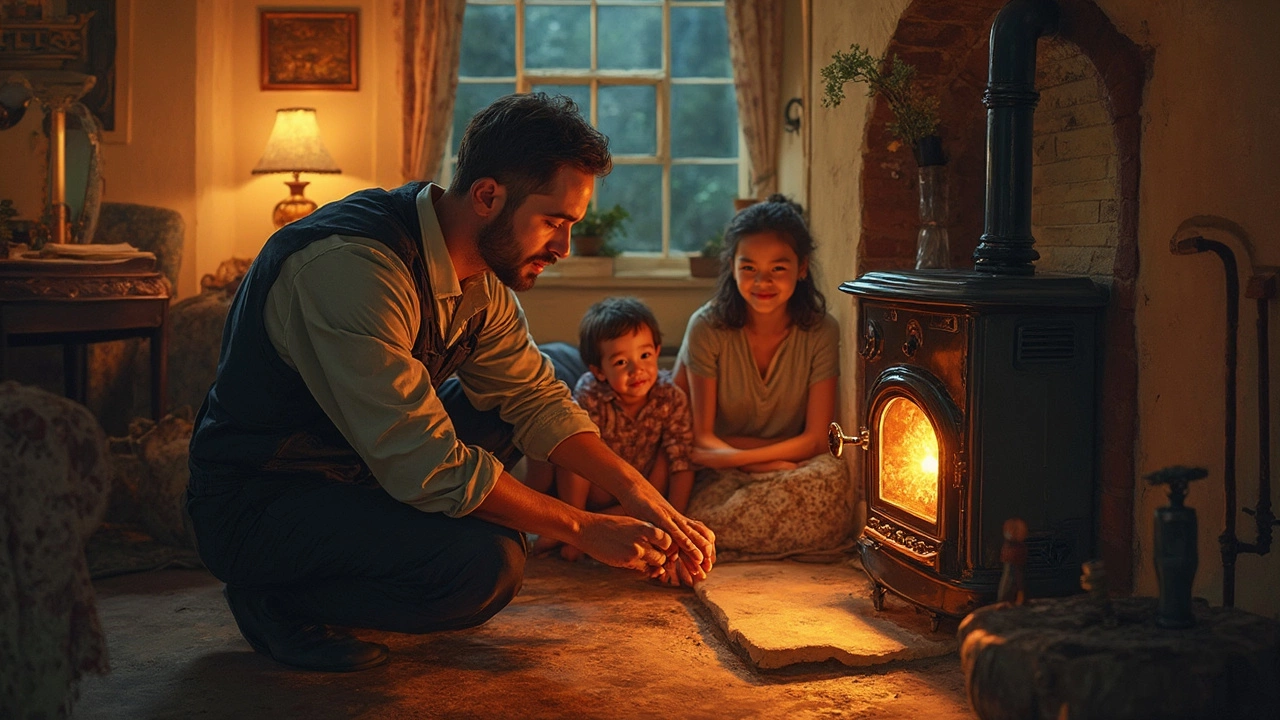
When to Call a Heating Specialist
Knowing when to call a heating specialist as opposed to a general plumber can save you time, money, and a lot of headache. There are certain signs and situations where it's better to have someone with focused expertise on the job.
Recognizing the Red Flags
If you've noticed your boiler frequently turning off, making strange noises, or showing error codes you don't understand, these are clear signals. Error codes, especially, are like your boiler's way of crying for help. While plumbers can fix leaks, boiler repair often involves more than just water-related issues.
Particularly, if you find that you're continually adjusting the thermostat with no effective result, it might indicate a problem with the control systems, something a specialist would understand better. According to a survey conducted by the Heating Equipment Testing Institute, 45% of recurring boiler issues stem from faulty wiring or control systems—a realm outside a plumber's standard toolkit.
John O'Leary, an expert from the National Heating Engineers Association, states, "While plumbers are essential for many household repairs, a heating engineer's specific training in boiler systems is unparalleled for accurate diagnosis and repair."
Specialist vs. Plumber: Spot the Difference
A couple of major differences stand between the specialists and those well-versed in piping. First, a heating engineer focuses primarily on the intricacies of heating systems and boilers, while plumbers cover a wider range of water-related issues. They are often better equipped to handle breakdowns related to pilot lights, thermostatic problems, and intricate part replacements.
- If the boiler loses pressure continuously, despite regular water pressure top-ups, it’s worth calling a specialist.
- Boiler ignition issues usually require a visit from someone who fully understands the electrical components involved.
- Inconsistent hot water or radiators not heating up as they should be are classic signs that the problem goes beyond basic plumbing.
In some cases, your warranty might even insist on specialist intervention. Warranty terms often stipulate that any repair must be carried out by a certified heating engineer, so going for the right help might just keep those coverage benefits intact.
So when the DIY tips and general plumbing fixes just don't cut it, trust your judgment and place a call to the experts. Your comfort—and your wallet—will thank you later.
DIY Tips for Minor Boiler Issues
If you’re a hands-on homeowner with a knack for fixing things, you might be able to tackle some minor boiler glitches on your own before calling in a pro. Here’s a rundown of a few things you can check that might save you an unnecessary service call.
1. Bleeding Your Radiators
This one’s pretty straightforward. If your radiators are only partially heating up, there might be air trapped inside. Grab a radiator key and insert it into the valve at the top of your radiator. Turn the key counter-clockwise to release any trapped air.
2. Check the Thermostat
It's easy to overlook the simple things, like the thermostat. Make sure it’s set to the correct temperature and is on the right setting. Sometimes a little reset can do wonders.
3. Examine the Pressure Gauge
The pressure gauge should typically be between 1 and 1.5 bars. If it’s too low, you may need to top up the system’s water. Find the filling loop and adjust the valves slowly to bring the pressure back to a normal level.
4. Restart Your Boiler
Have you tried turning it on and off again? Seriously though, a quick restart can resolve various hiccups. Most boilers have a reset button - consult your manual to locate yours.
5. Inspect for Error Codes
Some modern boilers have digital displays that show error codes if something’s wrong. Jot down the code and look it up in your manual for more details on the issue at hand. This might steer you in the right direction or, at the very least, give your heating specialist a head start.
Attempting these steps can sometimes help straighten out minor issues. But remember, if things are getting too complex or you’re unsure, it’s probably best to let a boiler repair guru take over. After all, tackling anything beyond your skill set could do more harm than good.
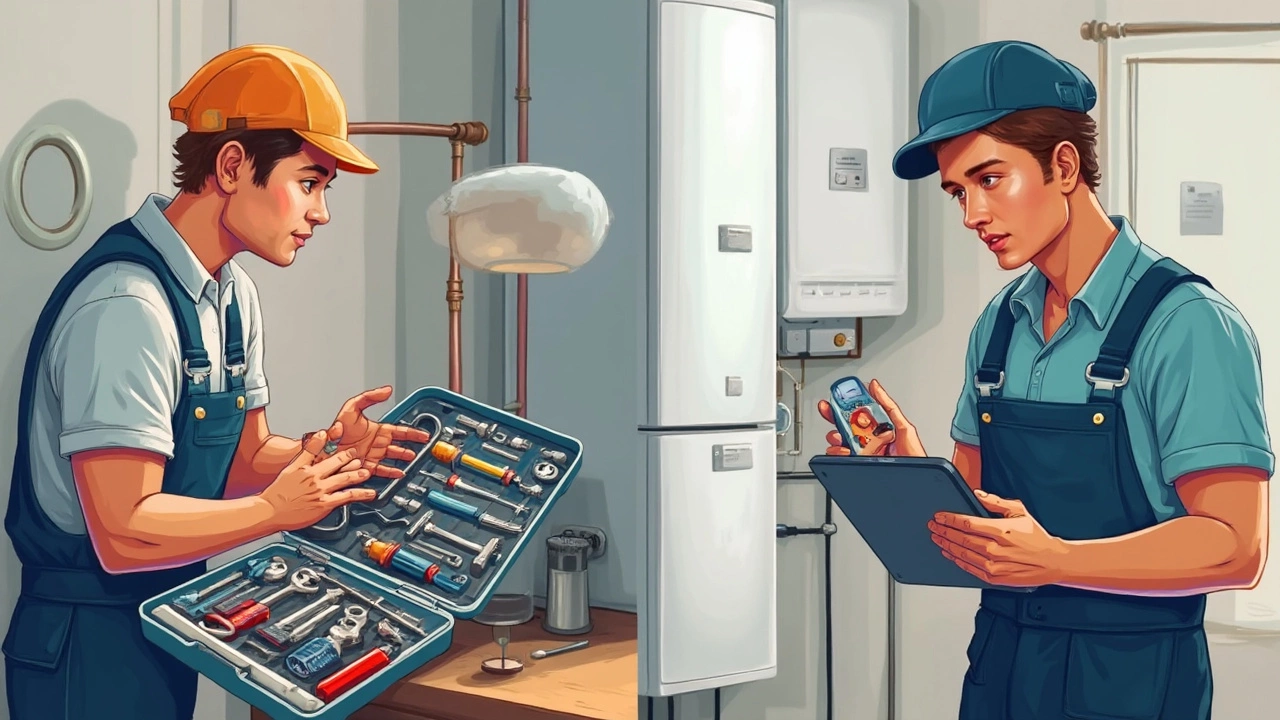
Ensuring Efficiency and Longevity
Keeping your boiler running smoothly doesn’t just happen; it requires regular attention and care. One of the best ways to ensure your heating system stays efficient is by scheduling annual maintenance checks. A well-maintained system is less likely to break down when you need it most.
Perform Regular Maintenance
To make sure your boiler repair needs are minimal, consider having a professional inspect your system once a year. They can check for leaks, corrosion, and ensure all mechanical parts are functioning correctly. This small step can prevent major headaches down the line.
Keep it Clean
Dirt and grime can be your worst enemy when it comes to boiler efficiency. Regularly clean around the unit, ensuring vents and intakes are free from dust and debris.
- Check air vents periodically for blockage.
- Ensure there's no clutter around the boiler for proper airflow.
Monitor Temperature Settings
It might be tempting to crank the heat, but keeping your thermostat at a moderate level can save wear and tear on the system. Plus, it helps reduce those pesky energy bills.
Timely Repairs
Don't ignore strange noises or drops in performance. What might seem like minor issues can quickly escalate into more serious plumbing services needs. Address problems promptly to avoid costly repairs.
Insulate Pipes
In colder months, uninsulated pipes can freeze, causing blockages or even bursts. Ensure pipes are adequately insulated to keep the water flowing and the system healthy.
| Average Maintenance Cost | Potential Savings |
|---|---|
| $100 - $200 per year | Up to 10% on heating bills |
By taking these simple steps, you can extend the life of your boiler significantly. When in doubt, consult with a professional to keep everything in tip-top shape. Remember, an efficient boiler not only saves money but also keeps your home comfortably warm when it counts.

